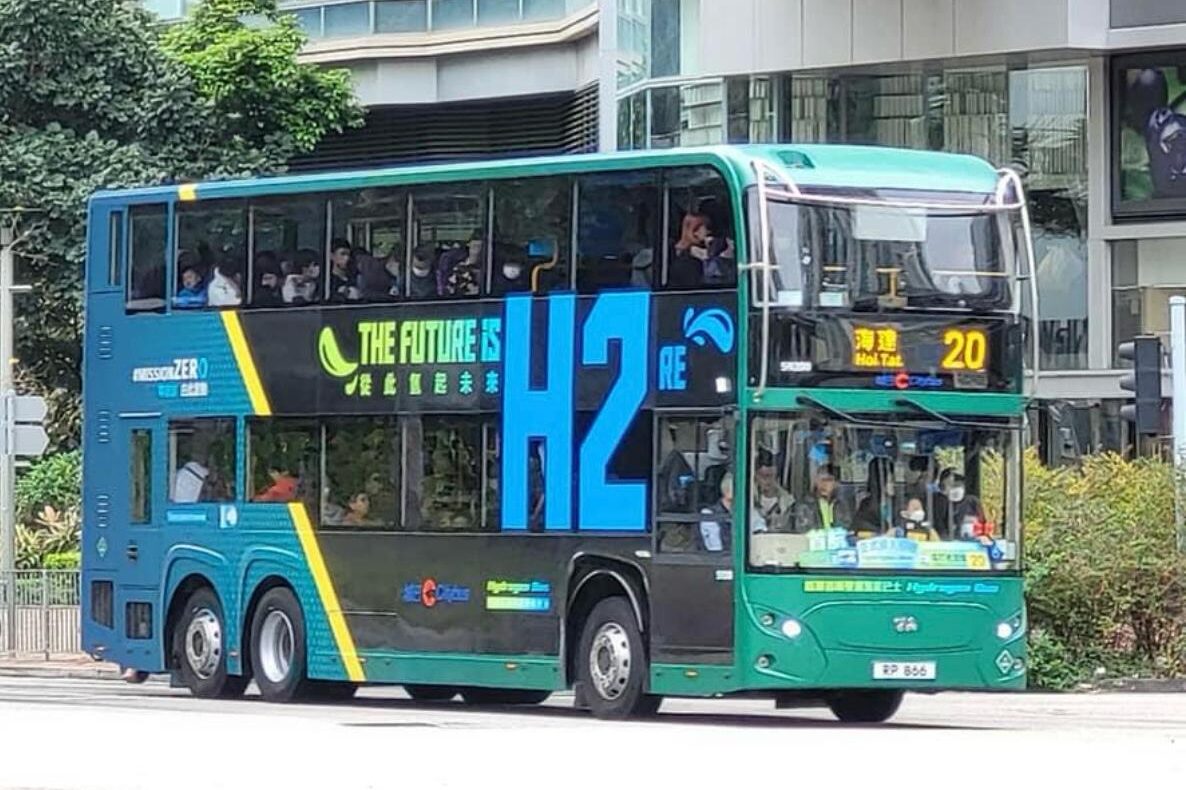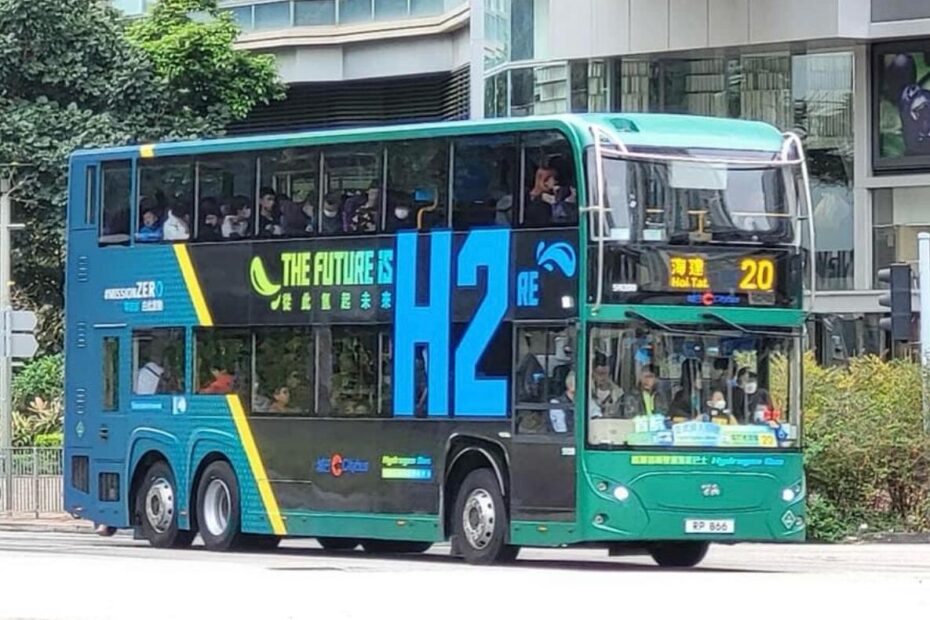Citybus, a public transport operator in Hong Kong, could replace 70% of its buses with hydrogen models. The company is testing a prototype of a hydrogen bus on public roads.

By Sagar Parikh
18.07.2024 – 09:30
That was reported by China Hydrogen Bulletin. According to the article, Citybus currently operates over 1,700 buses and serves more than 1 million customers daily.
Citybus uses DD12, the world’s first tri-axle hydrogen double-deck bus. The company co-developed it with Chinese zero-emission commercial vehicle company Wisdom Motor. Ballard-Weichai, a Canadian-Chinese joint venture, developed the fuel cell stack of this model. The fuel cell stack features Ballard’s FCgen-LCS technology and produces a maximum power of 80 kW.
The DD12 is a 12-metre bus which can accommodate 91 passengers. The hydrogen fuel cell electric bus takes 10 minutes to refuel and, according to Wisdom Motor and Ballard, delivers a range of 420 km. Citybus states a relatively conservative range figure, though – 400 km. The company refuels it at Hong Kong’s first hydrogen refuelling station, which it operates at its West Kowloon Depot.
The DD12 performed well in the initial deployment phase on three Kowloon routes and is now entering the second phase. Citybus plans to commence the regular, ongoing operation on both cross-harbour and long-haul routes soon.
Last week, the public transport provider drove its first hydrogen bus through Hong Kong’s road tunnels for the first time, a milestone. The country has an extensive tunnel network, and the company now has permission to use it, which unlocks many new routes for it. When it first deployed the FCEV into public service in February, it was only used on Route 20, from Kai Tak (Muk On Street) to Cheung Sha Wan (Hoi Tat).
Citybus plans to build a line-up of at least five hydrogen-powered buses for trials by December. The company is Hong Kong’s only franchised bus company to possess experience in operating both battery electric and hydrogen fuel cell electric double-deck buses. It aims to convert its entire fleet to zero-emission buses by 2045.



